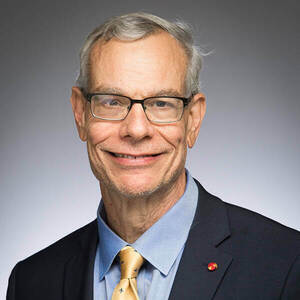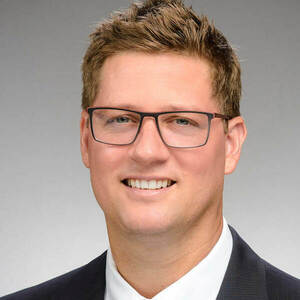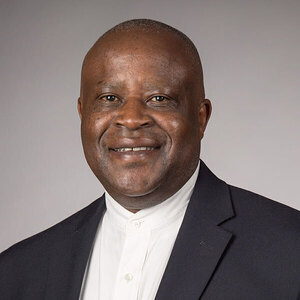ND experts respond to ‘Laudate Deum’: Tackling climate change is ‘a fundamentally human and social problem’
On Wednesday (Oct. 4), Pope Francis released “Laudate Deum,” an apostolic exhortation on climate change, intended as a follow-up to his 2015 environmental encyclical, “Laudato Si’.” Below, experts from the University of Notre Dame’s College of Arts and Letters and Keough School of Global Affairs offer their insight into the new document.
John Cavadini: ‘Laudate Deum’ offers ‘Augustinian twist’

John Cavadini, a professor of theology and director of the McGrath Institute for Church Life, believes — for better or worse — that Pope Francis’ newest apostolic exhortation is likely to be reduced to the scientific grounds it puts forward to urge the world to take climate change seriously.
“Some people, who disagree with the pope’s making a judgment of evidence that is strictly scientific, may say that the Church has no authority in the domain of science — remember Galileo? — and that the discussion of the scientific evidence for climate change should be left to scientists,” Cavadini said. “Others who find the pope’s treatment of the scientific evidence congenial to their political perspective may, for different reasons, also focus only on the exhortation’s strong endorsement of a reading of the evidence that seems to be in the majority.”
But the exhortation actually recalls themes from “Laudato Si’” that are deeply theological, Cavadini said.
“The critique of the technocratic paradigm is actually a critique of an abuse of science by elites who put science to use to consolidate and enhance their hold on power,” he said, “having the arrogance to determine, according to their own interests, what the things of creation are worth or not worth — including and especially people.
“Those who wreak environmental havoc blame the poor for having a lot of children, displacing the blame from their own entrenched, vested interests, while at the same time encouraging exploitation of the poor and of the land and ways of life that could support them.”
Cavadini also sees the exhortation as offering an “Augustinian twist on the traditional Thomist basis for Catholic social teaching,” as it features the unlimited anthropocentrism, which Augustine called “pride.”
“This is never actually inclusive but represents the lust for domination on the part of financial and cultural elites invested in the technocratic paradigm — which Pope Francis describes as thinking that ‘reality, goodness and truth automatically flow from technological and economic power as such,’” he said.
“There could be no more Augustinian line than the last sentence: ‘“Praise God” is the title of this letter. For when human beings claim to take God’s place, they become their own worst enemies.’”
Daniel Miller: ‘The pope names names’

According to Daniel Miller, associate professor of environmental policy, “Laudate Deum” represents not just a forceful follow-up to Pope Francis’ more in-depth “Laudato Si’,” but an exhortation to “all people of good will — not just Catholics — to act now to address global climate change and environmental destruction.”
“To stabilize the Earth’s climate and avoid the worst effects of climate change, we must rapidly and dramatically reduce our use of fossil fuels — coal, oil and gas — which are by far the largest contributor to global climate change,” Miller said. “‘Laudate Deum’ recognizes this in no uncertain terms. It explicitly calls out those who would deny climate change or delay progress.
“The pope names names: especially fossil fuel interests, leaders who appear to be concerned but do not have the courage to effect substantial change, and the rich and powerful who show a callous indifference to climate impacts on the most vulnerable. He is also not afraid to challenge dismissive views in the Catholic Church. He joins young people, concerned citizens of all ages and world leaders like António Guterres, secretary-general of the United Nations, in speaking increasingly bluntly given the urgency of climate action.”
The release of “Laudate Deum” is explicitly timed to influence negotiations at the U.N. climate summit (COP28) that begins this November in Dubai, Miller said, noting that the pope asks those participating in the conference to be “strategists capable of considering the common good and the future of their children, more than the short-term interests of certain countries or businesses.”
“Time will tell if world leaders are in this way able to, as Pope Francis puts it, ‘demonstrate the nobility of politics and not its shame,’” Miller said. “It will be up to us — all of us, but especially those of us privileged by living in wealthy, industrialized countries that have done the most to cause the problem — to hold our leaders to account. ‘Laudate Deum’ provides inspiration to do so while also changing our own practices so that we are part of the solution.
“Above all, it provides a powerful affirmation that tackling climate change and caring for our common home cannot be sidelined as only an environmental issue, but is rather a fundamentally human and social problem that we must collectively tackle. Here at Notre Dame, we are working to live this vision, which is part of the new University strategic plan as well as many ongoing efforts by faculty, staff and students.”
Emmanuel Katongole: ‘There is need for courage to undertake the necessary political and economic adjustments’

Although Emmanuel Katongole, a professor of theology and peace studies, sees no substantial new insights in “Laudate Deum” that were not addressed in “Laudato Si’,” he notes that Pope Francis seeks to bring attention to the urgency to the environmental crisis and to those most responsible.
“The exhortation is direct and pointed — particularly to those living within the most developed and ‘powerful’ nations, especially the United States,” he said, “calling out that ‘emissions per individual in the U.S. are about two times greater than those of individuals living in China and about seven times greater than the average of the poorest countries’ while noting that that the crisis is ‘not exactly a matter that interests the great economic powers.’
“Drawing from science, Pope Francis also takes head-on the climate-change deniers — some of whom are even within the Catholic Church — to argue that is no longer possible to doubt the human origin of climate change.”
Even more strongly than in “Laudato Si’,” Pope Francis notes how the technocratic paradigm has destroyed the healthy and harmonious relationship between human beings and the environment, Katongole said.
“In this connection, Pope Francis points to the terrifying power of technology,” he said. “Even as we have made impressive and awesome technological advances, ‘we have turned into highly dangerous beings, capable of threatening the lives of many beings and our own survival.’
“As a result, a broader perspective is urgently needed — and for this, there is need for courage to undertake the necessary political and economic adjustments which must be ‘drastic, intense and count on the commitment of all.’”
In the end, the unique contribution of “Laudate Deum” is a more explicit and urgent call, especially to powerful nations, that is particularly timely ahead of COP28, Katongole said.
“Even though there is a growing ecological awareness and initiatives on the personal, family, community and grassroots levels, not much has happened on the macro political and economic levels,” he said. “This is where political will by the powerful, and a reconfiguration of political institutions and processes — nationally and internationally — is required to save our common home.”
Latest Faith
- Undersecretary of the Dicastery for Promoting Integral Human Development to deliver Keeley Vatican LectureRev. Msgr. Anthony Onyemuche Ekpo, undersecretary of the Vatican's Dicastery for Promoting Integral Human Development, will deliver the Keeley Vatican Lecture on Monday (Feb. 10) at 5 p.m. at the University of Notre Dame.
- Nearly 500 students, faculty and staff to attend 2025 March for Life in Washington, D.C.On January 24, nearly 500 undergraduate and graduate students, faculty and staff from the University of Notre Dame, Holy Cross College and St. Mary’s College will participate in the 2025 March for Life in Washington, D.C., now in its 52nd year.
- Merry Christmas from Notre DameMay we be the seekers of truth, the sustainers of hope, and the builders of bridges that our world needs. – Rev. Robert A. Dowd, C.S.C., University President
- University of Notre Dame receives $10 million grant to strengthen faith-based service opportunities for youth and young adultsThe University of Notre Dame has received a $10 million grant from Lilly Endowment to fund the new Pathways to Communion Program at the McGrath Institute for Church Life. This program aims to strengthen the ecosystem of theologically informed service opportunities for young Catholics in the United States.
- What was the Christmas Star?It’s a story so familiar to many that you may not even realize there’s more to be discovered. The Bible describes an event that led so-called wise men to Jesus. Scripture calls it a star, but what was it really? That’s the question Grant Mathews, director of the Center for Astrophysics at Notre…
- Con todo el corazón (With all our heart)Coro Primavera celebrates Latino community on campus Enter the Basilica of the Sacred Heart during the 3:30 Sunday Mass, and you’ll hear a choir singing the tunes of the same church songs you remember—except the lyrics are in Spanish. Or you may hear some different melodies that bring new…










